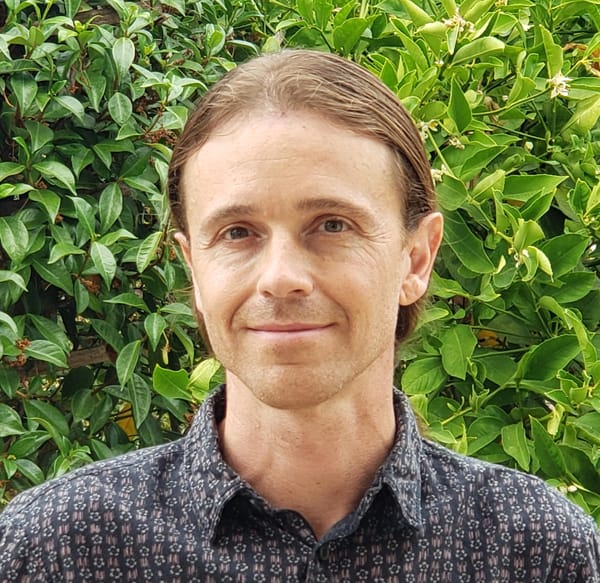VALLEJO – A state environmental agency has been putting pressure on the city of Vallejo to remove encampments around White Slough, which led to the displacement of a mother, four young children and grandmother when the RV and trailer they lived in was towed by the city on Monday.
The San Francisco Bay Regional Water Quality Control Board has been in communication with the city for over a year, urging city officials to remove encampments from areas near inlets to White Slough, according to emails released in a public records request.
The agency enforces pollution regulations under the federal Clean Water Act and it has the ability to levy fines against the city for as much as $10,000 a day, according to Keith Lichten, the agency’s watershed division manager.
Lichten said that these issues are common in almost every city in the Bay Area and the agency’s approach has been to encourage cities to introduce a range of practices such as trash collection, portable restrooms or access to restrooms in adjacent buildings and coordination with nonprofits that provide mobile showers and other supportive services.
“Essentially what we are trying to do is coordinate with cities to explore all options and not simply to make recourse to sweeps, which aren't particularly effective,” Lichten said. “In some cases, relocation is necessary and we work with cities to think about how an encampment can be relocated. But that’s not the first, second or even the third step.”
According to the emails between the Water Quality Control Board and Vallejo city officials, the agency began inquiring about encampments around inlets to White Slough in August of last year and has followed up with regular emails requesting information on how the city is addressing the issue.
In an email to Vallejo Public Works Director Melissa Tigbao, water board resource control engineer Imitaz-Ali Kalyan asked Tigbao to “describe measures the city is taking to move these residents to an area where they aren’t impacting receiving waters, and where homeless services such as trash collection, porta potties, & wash stations etc. can be provided.”
The emails specifically mentioned three privately owned properties where encampments are located alongside waterways that drain to White Slough. Tigbao responded to the agency saying that the city had opened code enforcement cases on all three properties and sent nuisance abatement letters to the owners of the properties.
Cities can take code enforcement actions against private property owners and fine them for non-compliance; this, in turn, urges property owners to evict encampments.
But encampments on public property are protected by the 9th Circuit Court of Appeals decision in Martin v. Boise, which prevents cities from removing individuals and their property unless there is appropriate shelter space available.
The encampment on Sereno Drive between Smart and Final and Carl’s Jr. that was evicted Monday was primarily on public property. The RV and trailer that housed Vanessa Gomez, her four children and their grandmother was parked on a public street when it was removed.
However, at the end of Sereno Drive, a stormwater culvert drains into an inlet which flows to White Slough.
Councilmember Cristina Arriola, who visited the encampment two weeks before it was evicted, said that City Attorney Veronica Nebb told her that an outside agency is cracking down on pollution caused by the encampments in and around White Slough.
“I understand if there are environmental concerns that need to be addressed, it's a very fragile water system,” Arriola said. “What I do not support is the way the city has handled the disruption of this small [encampment] in particular the family with four children,” she said, referring to Gomez’s family.
If the city can tow the vehicles to impound, said Arriola, it should also be able to move the trailers to a more suitable location and not just leave the family on the street. She also said that she feels that the city targeted the vehicles for registration and parking as a way to sidestep the Martin v. Boise restrictions.
The city of Vallejo and the police department did not respond to questions from the Vallejo Sun as to whether the city had offered any housing services or relocation support to Gomez and her family.
“We are also cognizant of the Martin v. Boise court decision that says that cities really shouldn't be displacing unsheltered homeless residents if there is nowhere else for them to go.” Lichten said. “But that doesn't mean that encampments shouldn't be managed or in some cases relocated to a place where they are easier to manage.”
He said that the discharges from encampments can pose public health risks in the case of human wastes and trash and plastics can be detrimental to wildlife. He said the discharges can also include hazardous wastes like car batteries or other dangerous materials.
“Often unsheltered homeless encampments are magnets for illicit dumping,” Lichten said. “So unfortunately, that can create an added challenge even when the residents themselves are being fairly clean.”
Lichten said that Bay Area cities are producing a report through an organization called Bay Area Municipal Stormwater Collaborative which will study different approaches to managing encampments in environmentally sensitive areas to come up with a list of best practices. The report is expected to be released in October.
Vallejo has been considering a variety of options to address homelessness one of which is to create safe parking areas for RVs and vehicles.
But with her RV and trailer impounded, these ideas are no help for Gomez and her family.
“I really have no words for what happened,” Gomez said in an interview. “I am still distraught with sadness and anger. They took my family’s home and they did not care what they were doing. If it was their families in our situation they would have found a way to help. Now I am just focusing on where I am gonna go for the next few nights.”
At the Sereno Drive encampment, the City posted another notice Thursday stating that all personal property and debris must be removed by Aug. 6 and that the city will impound any remaining personal property beginning at 7:00 a.m. Aug. 7.
Christine Hoffman, a 65-year-old disabled woman, is still living in her vehicle parked on Sereno Drive after city officials attempted to tow her vehicle on Monday. Her vehicle is currently inoperable and she is not sure where to go.
Housing commissioner Joey Carrizales was hospitalized for 2 nights due to a coronary episode that he suffered in police custody after he was arrested for blocking the tow truck’s path to access Hoffman’s vehicle.
Carrizales said that he will be at the Sereno Drive encampment Monday to help defend Hoffman's vehicle and belongings if necessary.
Before you go...
It’s expensive to produce the kind of high-quality journalism we do at the Vallejo Sun. And we rely on reader support so we can keep publishing.
If you enjoy our regular beat reporting, in-depth investigations, and deep-dive podcast episodes, chip in so we can keep doing this work and bringing you the journalism you rely on.
Click here to become a sustaining member of our newsroom.
THE VALLEJO SUN NEWSLETTER
Investigative reporting, regular updates, events and more
- Housing
- homelessness
- policing
- environment
- Vallejo
- Vallejo Police Department
- Regional Water Quality Control Board
- Keith Lichten
- Cristina Arriola
- Melissa Tigbao
- Imitaz-Ali Kalyan
- White Slough
- Martin v Boise
- Smart and Final
- Vanessa Gomez
- Veronica Nebb
- Christine Hoffman
- Joey Carrizales

Ryan Geller
Ryan Geller writes about transitions in food, health, housing, environment, and agriculture. He covers City Hall for the Vallejo Sun.
follow me :




